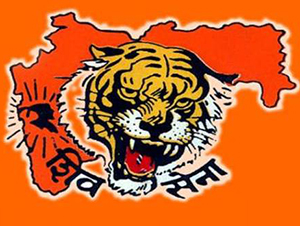Mumbai, Feb 26: Shiv Sena, which is identified with the 'Hindutva' ideology, has managed to make inroads in city's two Muslim pockets with the winning candidates calling the saffron party as their "true well wisher". The party put up a decent show by winning on 84 seats in the fiercely contested Mumbai civic body polls. The party had fielded five Muslim candidates, out of which two have won from Behrampada in Bandra locality and a ward representing suburban Amboli and Jogeshwari.
Sena candidate Haji Halim Khan (35), who won from ward no. 96 in Behrampada in Bandra (East) alleged that the projection that the party is 'anti-Muslim' is the "handiwork of certain sections of people". "Saying that Sena is anti-Muslim is nothing but crap and Sena's projection of Muslims in a bad light is a handiwork of certain sections of the society. Rather, Sena has always been helpful in sorting out our problems. They are our true well-wisher," he said.
"I can recollect that one of our prominent mosques came up only when Balasaheb Thackerayji helped," he said. A tour operator by profession, Khan's win has facilitated Shiv Sena register its first victory in the Muslim-dominated ward, which has been a Congress bastion. He charged Congress of treating the community as vote bank.
"Congress considers Muslim merely a vote-bank and nothing more than that, while Shiv Sena encourage every Muslim to be faithful towards the country. Balasaheb always praised to 'sachche musalman' (true Muslims)," added Khan. Sahida Khan (52), who has won from ward no. 64 to represent suburban Amboli and Jogeshwari, also echoed the views of Khan and said Sena has always helped people from the community whosoever has approached with a genuine problem.
"Hindutva a shadow, no one can deny and we need to live under it. There is nothing wrong when our party head says so. Most importantly, my party has always helped always been helpful to those from the community who have approached with a genuine problem," Shahida said. Shahida, who was a homemaker until now, is confident to address the issues of her locality with the help of her husband Haroon Khan, who is the party 'shakha pramukh' of the locality for the last 16 years.
According to political analysts, Sena's effort to reach out to Muslims is not an overnight stand, but it was a decision taken after due deliberation, which has yielded positive results. Anil Tiwari, resident editor of 'Dopahar Ka Saamna', party's mouthpiece, said, "We never used our paper to create a divide in the society on the basis of caste and religion. However, lately we tried to connect with the Muslims and highlighted issues concerning them through our editorial pieces and I think it worked well."
Sena, well known for anti-Muslim tirades, was pulled up by the Srikrishna Commission probing the 1992-93 communal riots, proved its soft stand towards Muslims when it gave wide advertisements in the Urdu dailies few day before polling and sought their votes.





Comments
Let us wait and see how Shiv Sena will help muslims. Shivaji was not anti muslims and hope Shiv Sena will try to keep it away from harming muslim community and will work to solve the issues faced by muslims particularly sacrifice of animals at thetime of Bakrid. Let us wait and see what will be the stand of Shiv Sena at the time of Bakrid. If Shiv Sena is really sympathetical to Muslims and firm on its statement, Muslims will be allowed for animal sacrifice at the time of Bakrid and they will get 5 percent reservation in govt employment.
Add new comment